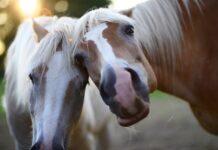A quote from Benjamin Franklin states: “Tell me, and I forget. Teach me, and I remember. Involve me, and I learn.”
To explain, 15 years ago I arrived into “grandparenthood” for the first time and one of my greatest pleasures has been to share my appreciation of natural resources with now four young people who think I know cool stuff!
Having worked for a soil and water conservation district for many years, I have experienced numerous opportunities to learn and to teach nature-based activities that educate, challenge, and motivate the most electronic-charged youth.
Children must be told and shown that they can make a difference in the environment and most importantly, they must be encouraged to enjoy being outdoors.
One of the most disturbing facts that I have heard in recent years was contained in an excerpt from the book Last Child in the Woods by Richard Louv.
There was a quote captured from a fourth-grader who goes on to say, “I like to play indoors better ’cause that’s where all the electrical outlets are.”
SWCDs can help
Your local soil and water conservation district office has bookshelves filled with resources to help to nature-oriented grandparents and parents, and teachers, and communities.
The activities are designed for different age groups and are designed to be relevant and meaningful to young people.
Activities can incorporate group opportunities or individual experiences that focus on soils, trees, water, wildlife and other natural resources.
Some of the education guides can be obtained through the SWCD offices upon participating in a workshop. Other activities are available for the asking.
Background information and definition of words and terms help to make this a fun experience for “teacher” and child.
Conservation and environmental issues are of a real life, problem-solving nature. By encouraging nature-based learning, we not only foster an appreciation of life, but encourage responsible environmental behavior.
Children can benefit greatly from a variety of learning environments no matter where you may live. Outdoor learning sites may include lakes, wetlands, forests, or farms, Consider caves and caverns, arboretums, parks, or your very own backyard.
There are activities developed to enrich any site, to reach all ages, and to spark interest in something more than the location of electrical outlets.
First-hand
When my oldest grandchild was attending kindergarten he boasted that he had bought me a book with his “own” money. The school book fair was made available to his class and he immediately focused on a book about the rain forest for me!
It was an exciting moment for him to be able to present to me this gift and I recognized that it was an even more meaningful turning point in our relationship. I realized right then that it was my responsibility to continue to be his link to the outdoors.
Camp Gigi
And now three grandchildren later, I have been the coordinator of the annual Camp Gigi for the last 10 years. For four days each summer, my grandchildren and I sleep in the backyard tent, make rain sticks, collect rocks, canoe, create soil paintings, plant trees, visit an uncle’s farm and much more.
The learning opportunities for all of us has been unlimited, the memories long-lasting and I feel confident that I am creating a path for connecting my grandchildren to conservation.













Nice story but what happens if you don’t have any grand children? I did my part…..